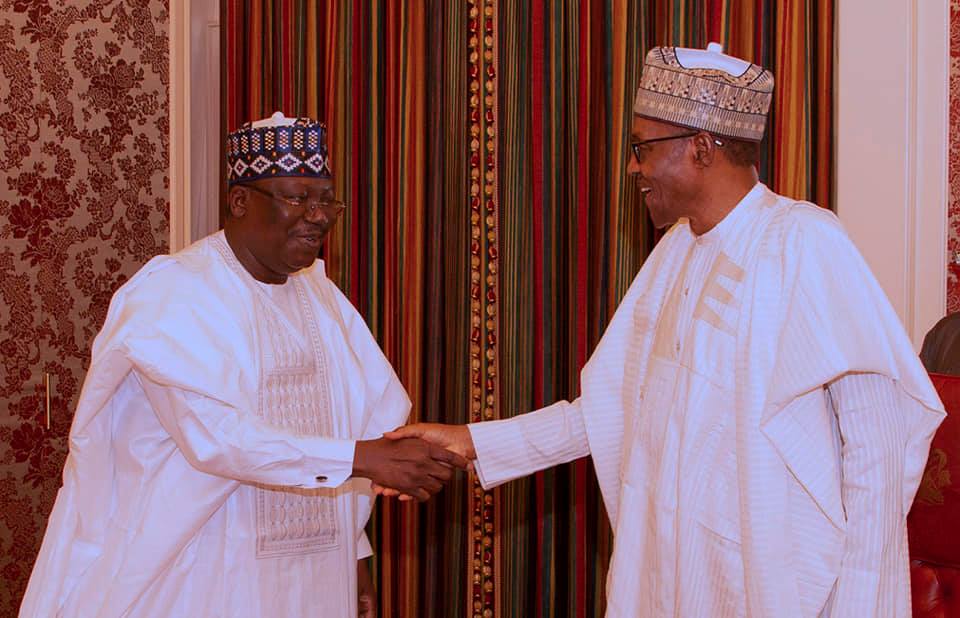BREAKING: Brighter future beckons on Nigeria, as nation’s Senate passes 2020 budget of N10.594 trillion on Dec. 5, 2019

*Senate makes history, passes next year budget 2 months after presentation
The Ahmed Lawan-led Nigeria’s Ninth Senate may have led the country into another level of cooperative legislativism as, for the first time in 20 years of the country’s Forth Republic democratic experience, it passed on December 5, 2019 the Budget of N10.594 trillion for 2020 into law.
Although this figure is against the proposed budget of N10.33 trillion presented to the joint National Assembly by President Muhammadu Buhari in October, 2019, the action of Senate passing the budget of next year 2020 into law 27 days into the end of current year 2019 has been described as sign of better things to come even as many Nigerians say, with the latest development, brighter future beckons on the country.

The passage of the budget represents record breaking and a deviation from what was obtained in the 8th National Assembly in which budget were passed almost eight months after it was presented.
The 2020 Appropriation Bill was passed into law after a clause by clause consideration of the report of the Senate Committee on Appropriations.
The Senate specifically approved N10,594,362,364,830 (Ten trillion, Five hundred and Ninety-Four Billion, Three Hundred and Thirty Naira) for the 2020 fiscal year.
The breakdown shows that N560,470,827,235 is for statutory transfers, N2,725,498,930,000 for Debt Service; N4,842,974,600,640 for Recurrent (Non-Debt) Expenditure; and N2,465,418,006,955 for Contribution to the Development Fund for Capital Expenditure for the year ending on December 31, 2020.
The budget has a Fiscal deficit of N2.2 trillion and Deficit/Gross Domestic Product (GDP) of 1.52 percent.
The budget is predicated on Crude Oil production of 2.18mbpd, just as proposed by the Executive; Oil Price benchmark of 57 dollar per barrel as against US$55 proposed by the Executive, Exchange Rate of N305 to US$1; Gross Domestic Product (GDP) and Inflation Rate of 2.93 percent and 10.81 percent respectively.
Capital Expenditure for Ministries, Departments and Agencies of Government (MDAs) for the 2020 fiscal year are: Ministry of Defence N116,181,290,730; Ministry of Foreign Affairs, N7,608,141,474; Ministry of Information and Culture, N7,555,803,233; Ministry of Interior, N34,035,825,302; Office of the Head of the Civil Service of the Federation, N1,722,796,040; Ministry of Police Affairs, N15,959,986,864; Ministry of Communication Technology, N5,919,002,554; and Office of the National Security Adviser, N27,418,469,323.
Others are: Office of the Secretary to the Government of the Federation, N25,188,940,930; Special Duties and Inter-Governmental Affairs, N2,158,620,395; Federal Ministry of Agriculture and Rural Development, N124,395,096,917; Federal Ministry of Finance, Budget and National Planning, N4,976,199,925; Federal Ministry of Industry, Trade and Investment, N38,583,331,761; Federal Ministry of Labour and Employment, N24,445,756,678; Federal Ministry of Science and Technology, N62,882,531,566; Federal Ministry of Transport, N121,366,932,571; and Federal Ministry of Aviation, N52,061,533,122.
Also, for the 2020 fiscal year, the Ministry of Power has an allocation of N129,082,499,363; Ministry of Petroleum Resources, N3,337,444,887; Ministry of Mines and Steel Development, N10,431,563,177; Ministry of Works and Housing, N315,563,564,269; Ministry of Water Resources, N91,679,927,042; Ministry of Justice, N3,853,600,220; Federal Capital Territory Administration, N62,407,154,360; and Ministry of Niger Delta Affairs, N23,120,350,399.
Others include: Ministry of Youths and Sports Development, N3,735,486,210; Military of Women Affairs, N6,650,300,966; Federal Ministry of Education, N84,728,529,572; Ministry of Health, N59,909,430,837; Federal Ministry of Environment, N12,350,140,731; and Federal Ministry of Humanitarian Affairs, Disaster Management and Social Development, N61,085,146,003.
President of the Senate, Ahmad Lawan, in his concluding remarks after the 2020 budget was passed, said, “when we came in, all of us approved our legislative agenda, and one of the key pillars of this agenda is to take back our budget cycle from the very undesirable cycle that can not be defined to something that can be defined and bought into by our country and business partners living in and outside the country.
“Today, we have been able to achieve this. It means where there is will, there is always a way. This is something that we have been able to achieve together with the House of Representatives.
“I must give members of the Ninth National Assembly the credit, because we thought it was going to be impossible.
“Let me also commend the buying-in of the executive arm of government. When we continued to preach that we have to receive the 2020 budget estimates before the end of September, it was not easy for the executive.
“I know they (Executive) worked day and night. So it was presented to us on the 8th of October. We have been able to work harmoniously. There is no way we can achieve this without all of us working together.
“I want to commend our colleagues from the opposition. This Senate from the beginning, we said, will be bi-partisan. You have given us all the support that we require, and indeed, this is the way it should be”, Lawan added.
The Senate President also noted that with the recent passage of landmark legislations such as the Production Sharing Contract (PSC) Act, Finance Bills and Public Procurement Bills by the National Assembly, the Executive arm of government is sufficiently empowered to ensure the successful implementation of the 2020 budget.









